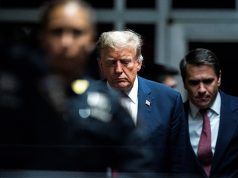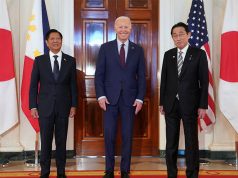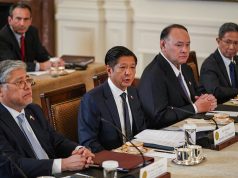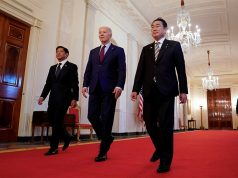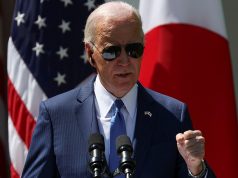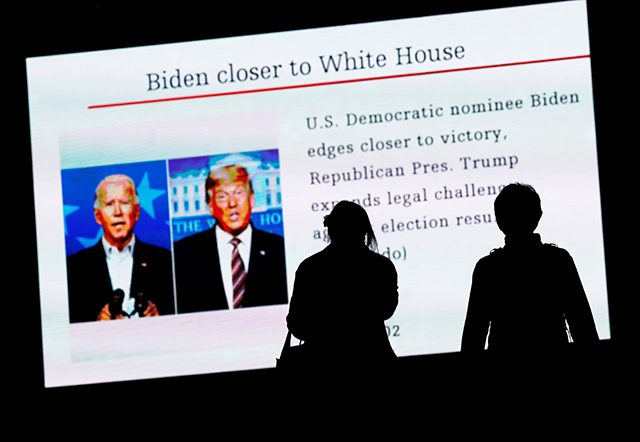
Major networks in the United States interrupted US President Donald Trump‘s false-laden speech to fact-check, a decision which drew praises from journalists and pundits online.
The world is closely watching the Western superpower conduct its national elections, particularly the presidential race between Trump, who is running for a second term, and Democratic presidential nominee Joe Biden.
Political analysts perceived this election crucial because the outcome will determine “America’s role in the world” amid the novel coronavirus pandemic, which affected its economy the most, and in the succeeding years.
As of November 6, 3:39 a.m. Eastern Standard Time, Biden is ahead of 253 votes from Trump who has 214 votes, according to Reuters’ live watch.
A candidate has to secure 270 electoral votes to win the presidency.
Amid the ongoing vote count, in a televised speech on November 5, EST, Trump wrongfully claimed his victory and even labeled the “late votes” as “illegal.”
“If you count the legal votes, I easily win. If you count the illegal votes, they can try to steal the election from us,” the incumbent leader said.
In a report by USA Today, given that such information was considered false, most major networks and publications that carried the speech or livestreamed it immediately dropped their coverage. These include the organization itself, MSNBC and ABC News.
CNN and Fox News aired the entire national speech.
In MSNBC’s live tweet, its anchor Brian Williams cut in Trump’s address just 35 or 36 seconds to correct the American president.
“OK, here we are again in the unusual position of not only interrupting the president of the United States, but correcting the president of the United States,” Williams said.
He then turned to the cable network’s chief legal correspondent Ari Melber about Trump’s allegations.
Melber quickly responded and clarified that the latter’s remarks are false.
WATCH: "OK. Here we are again in the unusual position of not only interrupting the president of the United States, but correcting the president of the United States," Brian Williams says on @MSNBC moments into the president's statement tonight. pic.twitter.com/2AliTQuSsr
— MSNBC (@MSNBC) November 6, 2020
In a statement on Twitter, USA Today’s Editor-in-chief Nicole Carroll also provided an explanation for stopping their livestream of Trump’s press briefing.
“President Trump, without evidence, claimed the presidential election was corrupt and fraudulent. We stopped the livestream of his remarks early and have removed the video from all of our platforms,” Carroll said.
“Our job is to spread truth—not unfounded conspiracies,” she added.
Editor-in-chief @nicole_carroll on pulling the livestream of President Donald Trump's remarks tonight. pic.twitter.com/GPrQudnFjj
— USA TODAY (@USATODAY) November 6, 2020
Can the Philippines do it too?
This development, particularly the tweets of MSNBC and USA Today, eventually reached reporters, professionals and other concerned Filipinos on the micro-blogging platform.
Took corporate media long enough but congrats I guess. https://t.co/OPHBGTfwj6
— Glenn Diaz (@glennndiaz) November 6, 2020
GANITO DAPAT. Hindi ‘yung papakita kayo ng drug matrix na parang drinawing ng bata, posters na nangreredtag (graphic design is my passion), interview sa isang pseudo-org na may lumabag daw sa franchise etc.
Huwag bigyan ng airtime ang mga makapangyarihang sinungaling. https://t.co/ZNdVQ4sj6z
— K Manuel (@theklmanuel) November 6, 2020
Journalists such as Jeff Canoy, Barnaby Lo and Raffy Tima praised the international news outlets’ brave decision to cut off Trump.
Presidential daughter Aika Robredo, however, raised the question on the possibility of the Philippine media performing the same gesture.
“Do you think our media can pull off an MSNBC?” she asked.
Do you think our media can pull off an MSNBC? https://t.co/40SmJpdZg2
— Aika Robredo (@aikarobredo) November 6, 2020
Most of the responses were negative and argued that journalists were not united enough.
Doctor Jonathan Sy cited the circumstances when Palace banned Rappler reporter Pia Ranada from coverages in 2019.
“I’m not counting on this happening here. I don’t think we as a whole pushed back hard enough when the Palace kicked @piaranada out. The pigs continue to trample on us and take us for chumps. That’s on us,” Sy said.
Aika’s sister Tricia Robredo likewise noted that mainstream media tend to have misplaced priorities in coverages.
“Meanwhile in the Philippines: unfounded conspiracies, crass late night ramblings, politician airtime prioritized over actual disaster reports from the ground,” she said.
Meanwhile in the Philippines: unfounded conspiracies, crass late night ramblings, politician airtime prioritized over actual disaster reports from the ground. https://t.co/0oAhZePWJ6
— Tricia Robredo (@jpgrobredo) November 6, 2020
Washington Post news correspondent Regine Cabato made a suggestion for local programs moving forward.
“Serial liars shouldn’t be invited on as guests on local programs if they can’t be corrected live. Just cut their quotes and contextualize/frame them. They shouldn’t be allowed to go off unchallenged for several minutes,” she said.
Photojournalist Eloisa Lopez and journalist-educator Danilo Arao echoed this view and shared the lessons they gathered from US coverage of elections.
“Refusing to broadcast/publish their baseless statements do not make us one-sided. It makes us truthful,” Lopez said.
“In the Philippines, it is time to rethink the news media organizations’ live coverage of Duterte’s ramblings,” Arao wrote.




